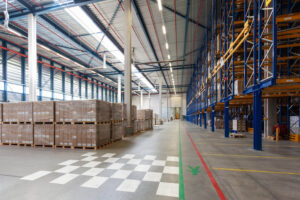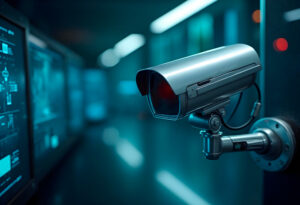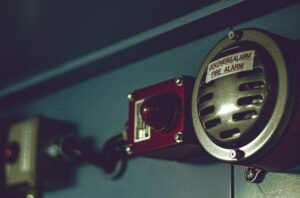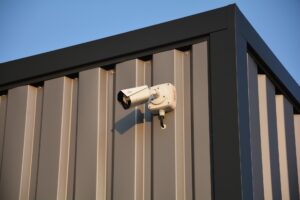
Looking for Smarter Access Control in Essex?
What is an Access Control System?
An access control system is a secure, modern solution for managing who can enter your building or specific areas within it. Instead of relying on traditional metal keys, it uses smart technology such as key fobs, swipe cards, or PIN codes. At AI Security, we often install Paxton access control systems for businesses across Essex, including offices, warehouses, and retail stores. These systems are reliable, easy to use, and scalable for future growth.
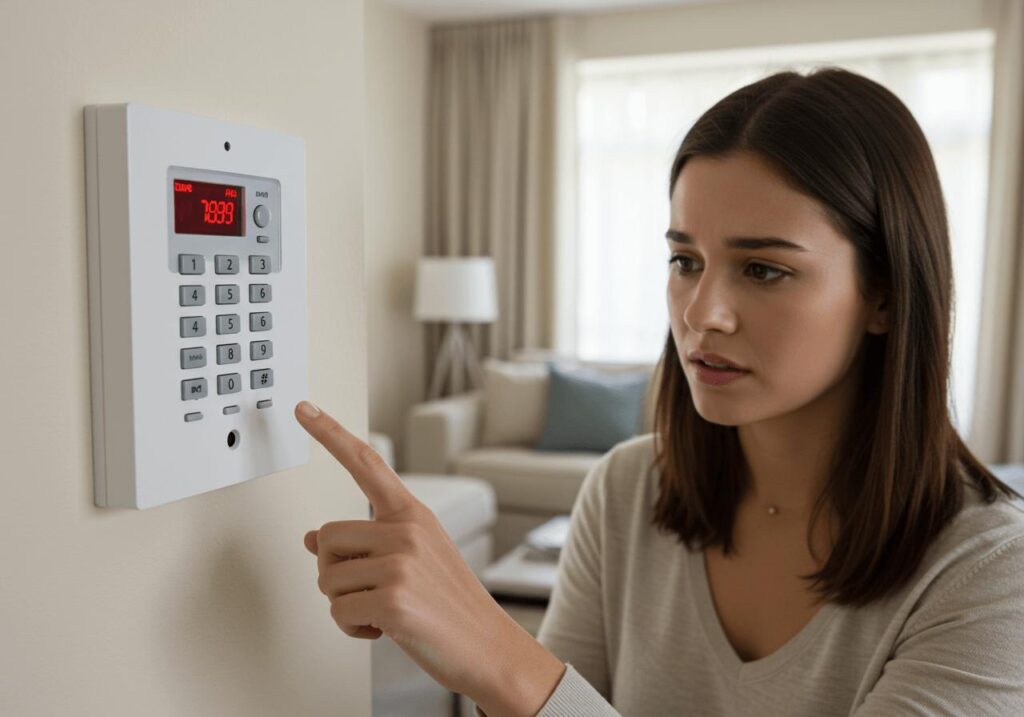
Years
Expertise
30
Are Old Keys Putting Your Essex Business at Risk?
Traditional lock and key systems create security gaps, unnecessary costs, and extra workload for businesses in Essex. Modern access control eliminates these risks.
Common issues with keys include:
- Lost keys mean expensive lock changes – When a key goes missing or an employee leaves without returning it, you often have to replace locks across the premises. This can cost hundreds of pounds and disrupt daily operations.
- No entry tracking – Keys provide no record of who entered a restricted area or when. This is a major risk for stock rooms, server rooms, and offices containing sensitive information.
- Unauthorised key copies – Keys can be duplicated without your knowledge, creating long-term security vulnerabilities.
In high turnover environments like retail stores in Colchester or offices in Southend, these problems happen more often than you might think. Security breaches can cost a small business thousands of pounds, not including the reputational damage.
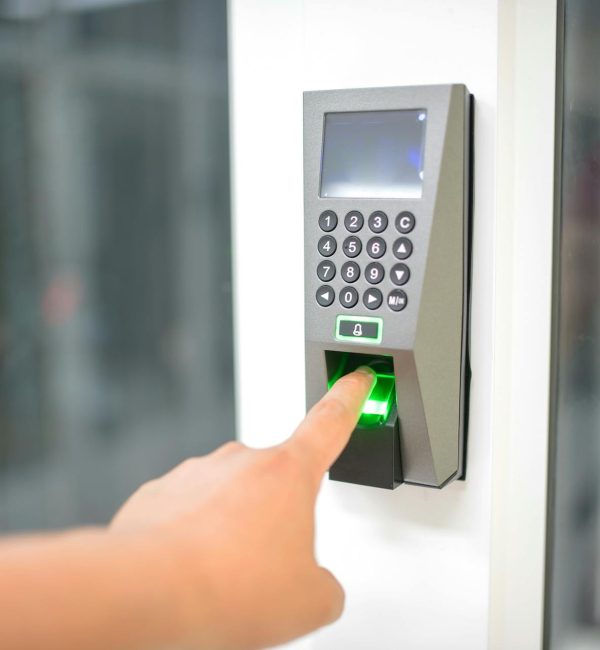
How We Help Essex Businesses Improve Security
We design and install access control systems that solve real security issues for property managers and business owners across Essex. Every system is built around your needs, making security simple and effective.
Example – Chelmsford
A multi-tenant office was losing time and money dealing with lost keys and no control over after-hours access. We installed a Paxton Net2 system, giving each tenant their own card and time-based access. The manager can now add or remove cards instantly, improving security and saving hours of admin work.
Other projects in Essex:
Basildon – Industrial units protected from unauthorised access.
Colchester – Retail shops controlling staff-only areas.
Harlow – Logistics depots tracking deliveries without key handovers.
Key Benefits for Your Essex Business
Modern access control systems improve security and streamline daily operations. Here are the main advantages:

Total Control Over Staff Access
Grant or remove access instantly based on job roles. Protect sensitive areas like server rooms and stop worrying about unreturned keys. For Essex businesses with changing teams, this saves admin time and reduces risk.

Easy Multi-Site Management
Control multiple locations from one system. Set rules, time limits, and view entry logs without visiting each site. Ideal for Essex businesses operating in towns like Southend, Braintree, and Grays.

Full Audit Trail
See exactly who entered where and when. Essential for resolving incidents, supporting insurance claims, and reducing losses — especially with business crime in Essex costing thousands per incident.

Seamless Integration
Link your access control with CCTV, intruder alarms, or fire alarms. Get instant alerts, trigger cameras on unauthorised entry, and improve safety during emergencies.
How We Help Businesses Across Essex
Solve These Problems
We design access control systems that solve the real-world challenges faced by property managers and business owners right here in Essex. Our approach focuses on your specific needs, making security straightforward and effective.
A Common Mistake We Help Businesses Avoid
One of the biggest pitfalls we see is businesses choosing a system that can’t grow with them. A cheap, single-door keypad might seem like a good deal now, but when you want to add another door or need a better audit trail, you often have to rip it out and start over.
We always discuss your future plans to avoid this. For a small office, we might recommend Paxton’s Switch2. It’s affordable and standalone, but you can easily upgrade it to a full PC-based system later. This saves you a lot of money and disruption down the line. We’ve guided many Essex clients through this, ensuring their setup lasts as their business expands.
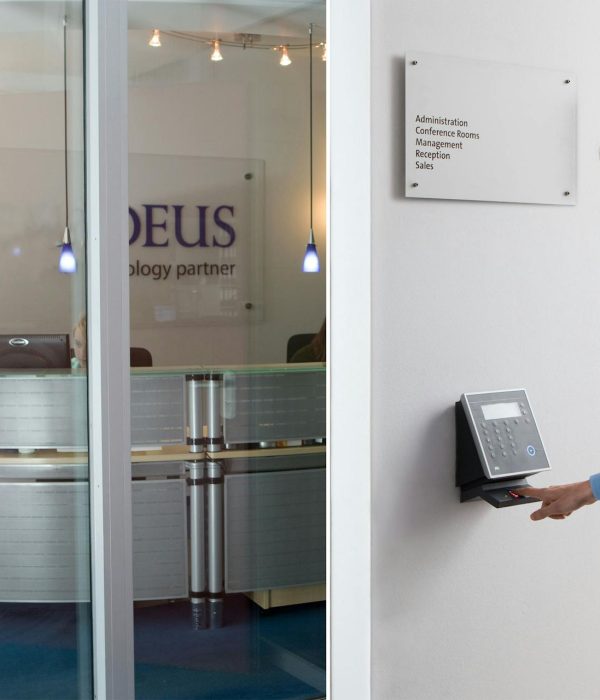
Why Choose Us For Your Access Control in Essex?
You want a team that’s local, reliable, and focused on your needs. We’re that team, with years of experience helping businesses across Essex.
- Truly Local Essex Engineers: When you call us, you're not getting a subcontractor from London. Our engineers live and work in Essex, meaning we can get to you faster, especially when you need us most. Just ask the logistics manager in Harlow who had a main gate reader fail on a Friday afternoon—we had an engineer there within hours to prevent a major weekend of disruption.
- NSI Gold Accredited: This means our work is independently checked to the highest standards. It's your guarantee of a quality, reliable installation that meets rules like NSI NCP109.
- We Use The Best Technology: We're approved installers for leading brands like Paxton, so you get a robust system that's built to last. We pick what's right for you, whether it's basic cards or advanced biometrics.
- Free, No-Pressure Site Surveys: We'll come to your premises, listen to your needs, and design a system that works for you. No hard sell, just honest advice to help you decide.
We’re committed to Essex businesses, from industrial parks in Basildon to offices in Chelmsford. Our goal is to make your security simple and effective.
Let's Secure Your Business Premises Today
Ready to replace your outdated keys with a modern, secure, and efficient access control system? Get in touch with our friendly Essex-based team today.
ai-security combines 30 years of unrivalled customer service, a comprehensive understanding of client needs and the latest technologies available to provide intelligent and cost-effective security solutions to customers across the UK.
Specialization
Company
Accreditations


contact Us
Contact Details:
Address:
- Vigilant House, 1155a London Road, Leigh-on-Sea, Essex, SS9 3JE
Follow us:
- Copyright © 2026 ai-security
- Privacy Policy
- Terms of Use
- Marketing by Eruptible Marketing
